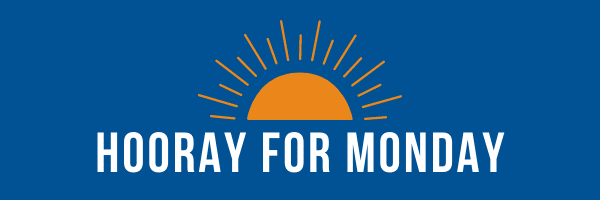June 7, 2021
By Aleta Margolis, Founder and President, Center for Inspired Teaching
Hooray for Monday is a weekly blog filled with questions, ideas, reflections, and actions we can all take to remodel the school experience for students.

When I was a child, I thought my teachers wielded ultimate power. I believed everything that happened to me in school – enjoyable, upsetting, and everything in between – was the direct result of the actions of my teachers. I didn’t know about district leaders and school boards and textbook publishers and policymakers.
When I became a teacher myself, I began to learn about the forces that influenced and constrained teachers: policies covering everything from dress code to cursing, assessment tools that prioritized certain kinds of learning and content, textbooks that told only part of the story, curricula and standards, city and district politics, parental pressure, and more. As I started teaching teachers, I came to understand the role systemic factors play in forcing teacher compliance and how difficult it can be for educators to work for change and still remain employed. And I realized how difficult it can be to pinpoint the origin of a policy or practice; in schools, we tend to do things a certain way because that’s the way they’ve always been done.

The people responsible for the decisions about how schools ought to go are dead. Very few people are able to ask questions of dead men. So we treat those decisions precisely as if dead men made them, as if none of them are up to us live people to make, and therefore we determine that we are not responsible for any of them. (p. 80)
These lines from James Herndon’s book How to Survive in Your Native Land were written 50 years ago, and still resonate today. Yet the need to push against the rules imposed by “dead men” continues to be vital if we are to meet the real needs of our students and keep the educational system, and our society, moving forward. Here are some examples:
-
Dress codes have always been a way to impose control on young people and often stand in opposition to the creation of inclusive learning spaces that honor students for who they are. It sounds absurd that what students wear on their feet could bar them from graduation or that wearing a skirt could bar them from school, but teachers are often the ones who have to stand up to oppose such rules.
-
There are laws being passed right now that ban the teaching of critical race theory in schools. Unless teachers stand up to these laws, and we all support teachers in doing so, our students will be unlikely to learn the long-hidden truths of our history like the Tulsa race massacre.
Though systemic factors can slow, obstruct, and sometimes run directly counter to improving schools, behind every story of progress we find teachers who fight the status quo while pouring their time and expertise into the growth of their students. This recent article offers brilliant examples of teacher-driven innovations that have not only helped students navigate Covid, but will continue to improve the school experience for the long term.
As we look back on this extraordinary year, filled with public and private stories about the journey we’ve undergone as teachers and students, Inspired Teaching will continue to lift up the stories of teachers who are making positive change. These stories remind us that in spite of how it may feel, we have the power to create changes in policy and in instruction and to shape the school experience for ourselves and our students.
Do you have a story of change you can share with us? We’d love to share it with others!
